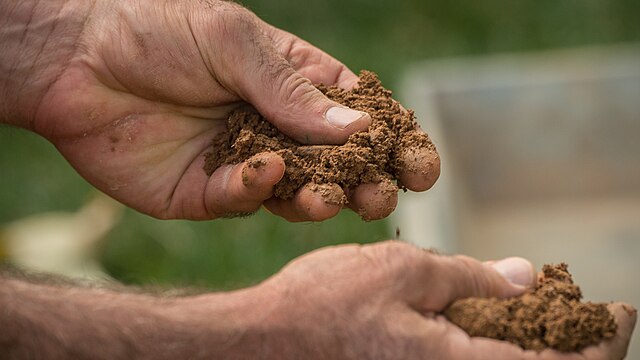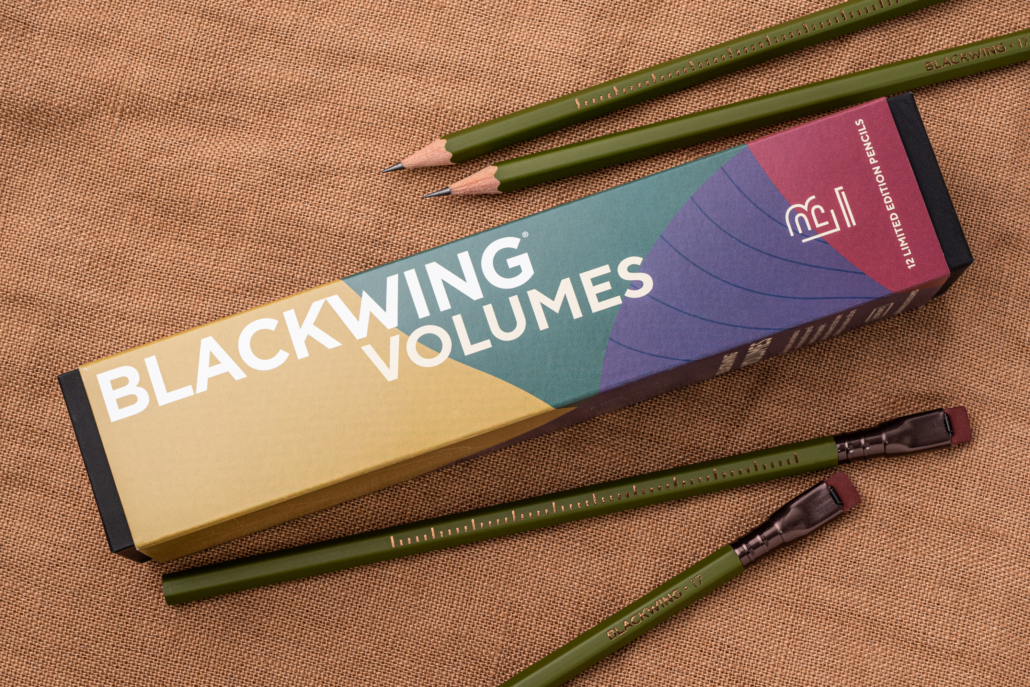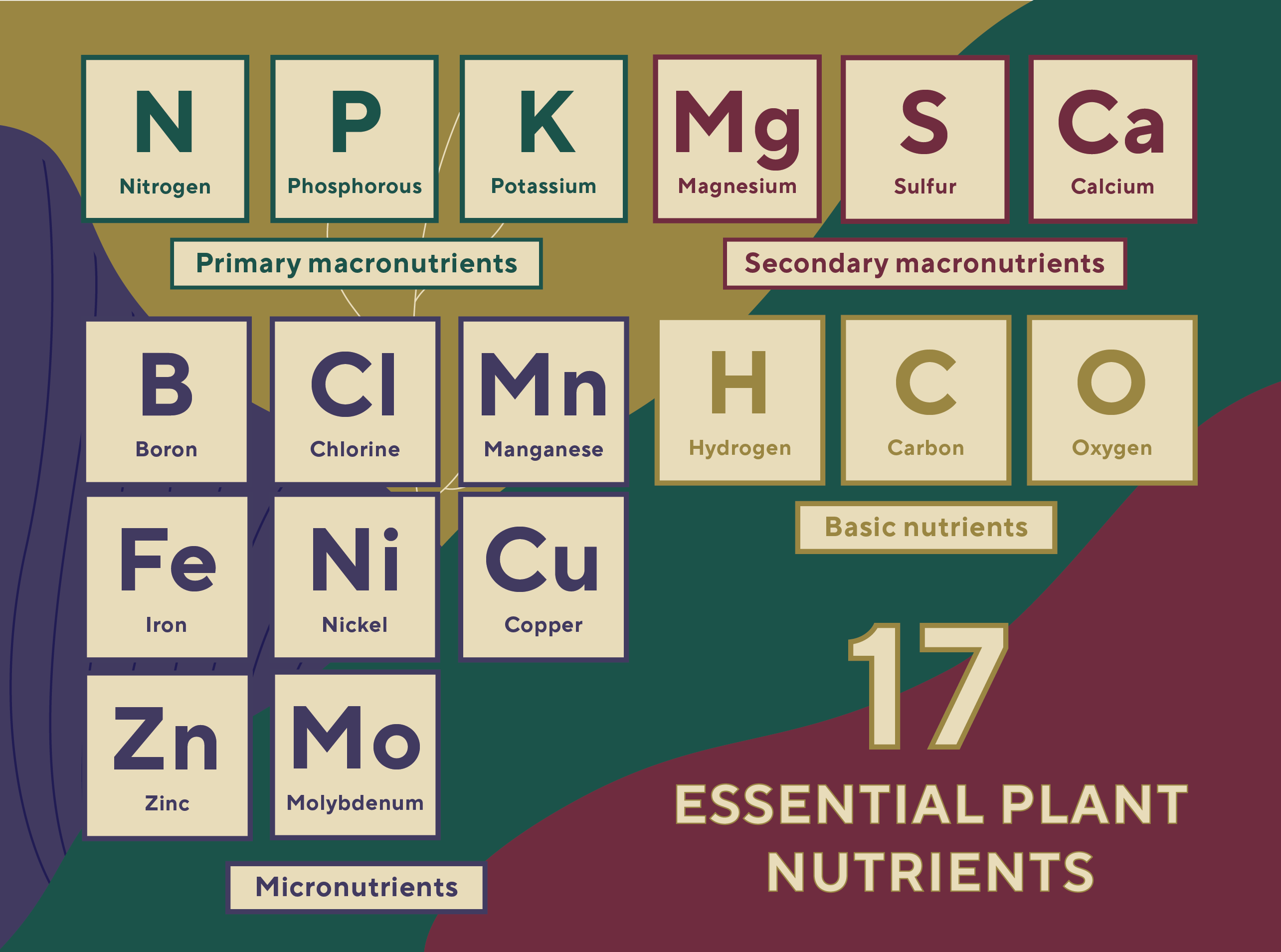17 Essential Plant Nutrients – Basic and Macronutrients
Blackwing Vol. 17 examines the beauty of gardening. Gardening allows us to maintain a meaningful practice and an outlet to interact with the world around us and bring new life into our ecosystems. As we watch plants grow, visual cues often give critical insights into the plant’s health.
There are 17 essential nutrients that help promote plant growth. Often, oversaturation or deficiencies can cause plants to change their appearance or stifle growth. Understanding the science that contributes to growth, your specific plant’s needs, and how each essential nutrient plays its part is crucial to having a healthy, sustainable garden. Learn more about the basic nutrients that come from the water and air and the 6 macronutrients that plants require in large quantities:

Basic Nutrients
Naturally occuring in air and water.
Hydrogen (H) – Comes from water. Builds plant sugars and plant structure.
Carbon (C) – Takes in Carbon Dioxide from the air and converts the carbon into energy to develop sugars and carbohydrates
Oxygen (O) – Crucial for cellular respiration. Most of it is released into the air, but some of it is saved for future energy.
Macronutrients
Supplied through nutrient rich soil in larger quantities.
Nitrogen (N) – Plays several roles and is necessary for chlorophyll production through photosynthesis. Nitrogen deficiency leads to yellowing leaves and slow growth.
Phosphorous (P) – Also plays several key roles. It is part of the ATP process which contributes to energy storage and transfer for the plant. It is vital for root, flower, and fruit growth.
Potassium (K) – A component of plant moisture regulation, cold resistance, and helps determine fruit quality. Potassium is vital to the formation of carbohydrates and proteins. It also contributes to fruit color and shape.
Magnesium (Mg) – Crucial for root formation, chlorophyll production, and enzyme activity. Plants with Magnesium deficiency have yellow between leaf veins.
Sulfur (S) – An important part of amino acids, vitamins, and chloroplast growth. While Nitrogen deficiencies primarly target old leaves, Sulfur deficiencies affect new growth.
Calcium (Ca) – A major component of cell walls and helps strengthen leaves. Calcium deficiencies lead to stunted plant growth and defective root systems.

Just as there are 17 essential nutrients for healthy plant growth, there are many essential “nutrients” for a fulfilling life. Keeping a garden or planting new growth allows us to tend to ourselves with love, happiness and purpose. Blackwing Vol. 17 is inspired by the life-giving meditation of planting, watering, and tending to the natural world.

